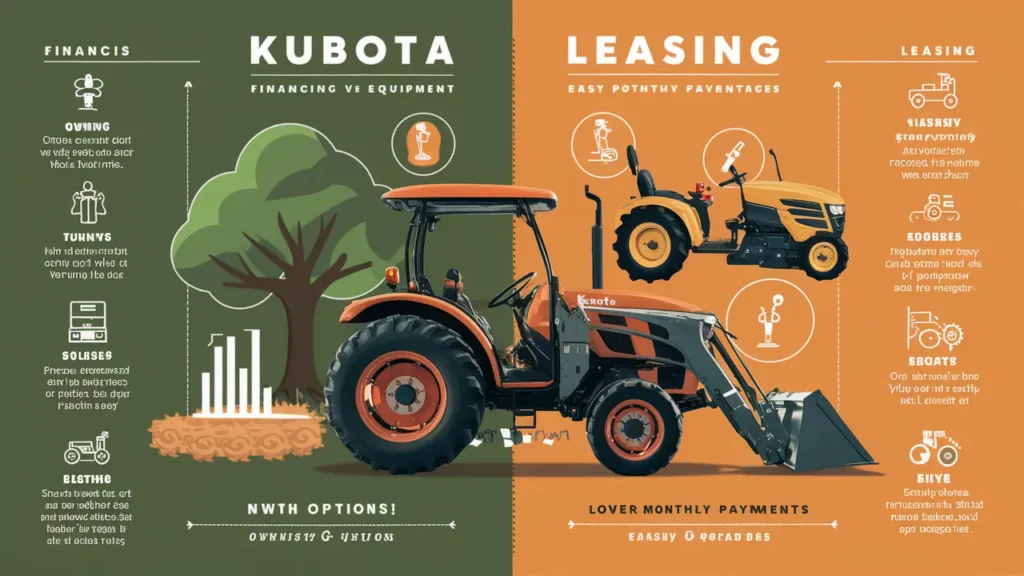Choosing between financing and leasing for heavy equipment like tractors and construction machinery can be a big decision for businesses. Kubota, a top name in the industry, offers both options. Knowing the differences and figuring out which is right for you can make a big impact on your bottom line. Let’s dive into Kubota financing versus leasing to help you make the best choice for your business.
Differences Between Kubota Financing and Leasing
When it comes to Kubota financing and leasing, it’s key to know what sets them apart. Financing means taking a loan to buy the equipment, letting you build equity over time. Leasing, however, offers lower initial costs and the flexibility to upgrade equipment more often.
We’ll look at the financial implications, tax benefits, and long-term commitments of each. Stay with us as we break down Kubota financing and leasing to find the best fit for your needs.
Advantages of Kubota Financing
Kubota financing has several perks. First, you get to own the machinery, which means long-term savings once the loan is paid off. Owning the equipment also lets you customize it to fit your specific needs.
Plus, there are potential tax benefits, like depreciation deductions and interest expense write-offs. We’ll go into more detail on these benefits so you can see if Kubota financing is right for your business.
Advantages of Kubota Leasing
Leasing Kubota equipment has its own set of advantages. You can get the latest machinery without a big upfront cost, making it easier to keep up with new technology.
Leasing also means predictable monthly payments, which helps with budgeting and cash flow management.
You might also get tax benefits, like deducting lease payments as operating expenses. We’ll explore these benefits further to help you decide if leasing aligns with your business needs.
Factors to Consider When Choosing Between Financing and Leasing
When deciding between financing and leasing, consider your cash flow and long-term goals. Financing might be better if you want to build equity in the equipment. Leasing offers the flexibility to upgrade without owning the machinery.
Think about your tax strategy, too, as deductions and credits differ between the options. Also, consider how you’ll use the equipment and its potential wear and tear. By looking at these factors, you can choose the option that best fits your business.
Making an Informed Decision for Your Business
After considering all the factors, it’s time to make a decision that aligns with your business goals. Review your financial projections and see how each option fits your budget and growth plans. Talk to financial advisors or industry experts for valuable insights.
Make sure you understand the terms and conditions of both financing and leasing offers. By analyzing all aspects and seeking professional advice, you can confidently choose the best option for your business.
Conclusion:
Choosing between Kubota financing and leasing involves a careful look at your finances and business goals. By evaluating your budget, growth plans, and operational needs, you can find the best option. Get advice from financial experts to make an informed choice.
Review the terms and conditions to ensure they fit your business smoothly. Ultimately, the right choice will boost your efficiency and productivity, supporting your business success. Choose wisely and drive your business forward with the right Kubota equipment solution!

